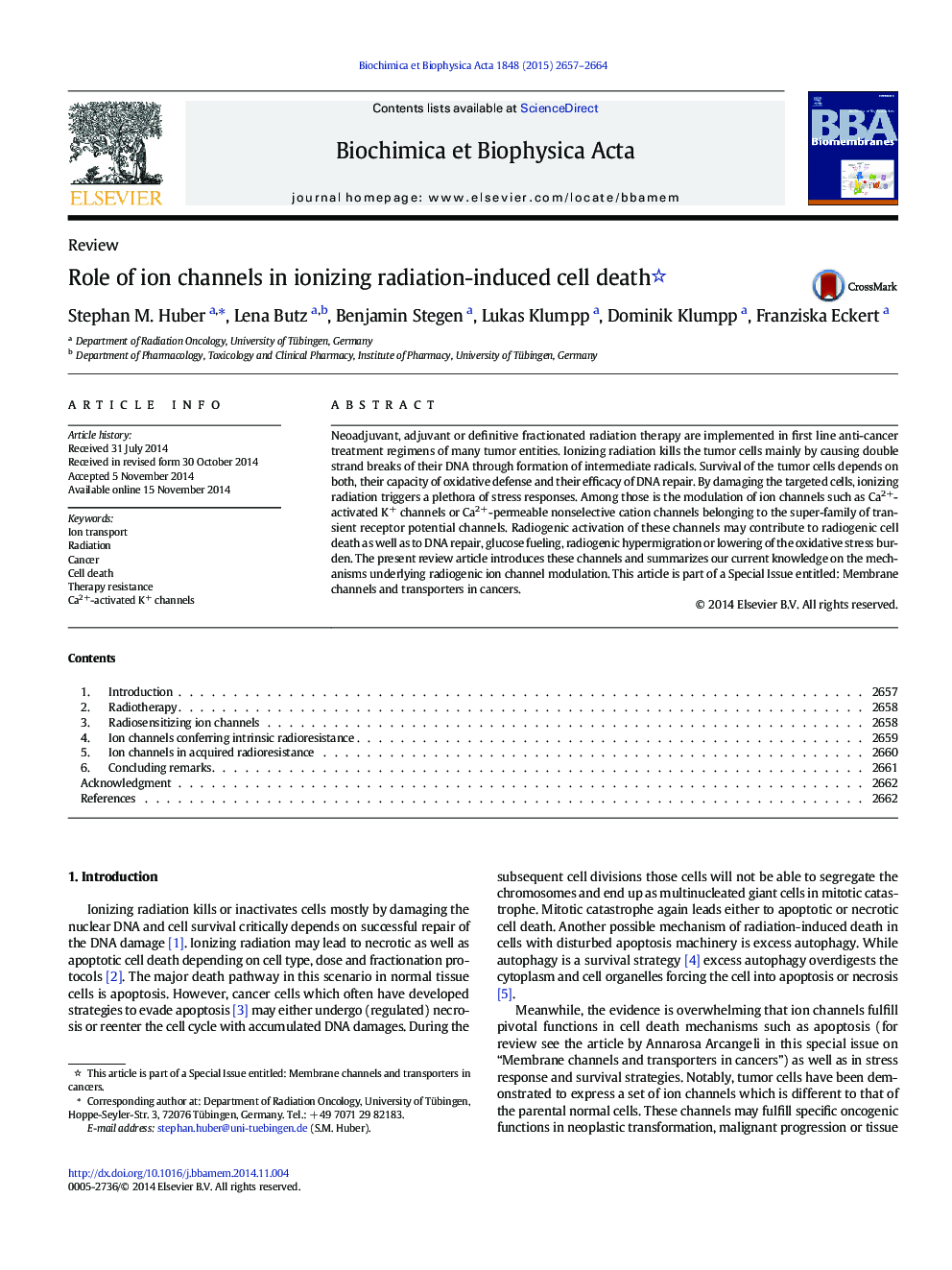| Article ID | Journal | Published Year | Pages | File Type |
|---|---|---|---|---|
| 1944085 | Biochimica et Biophysica Acta (BBA) - Biomembranes | 2015 | 8 Pages |
•Ion channels are often aberrantly expressed in cancer cells.•They are modified during radiotherapy and may contribute to radioresistance.•They might interfere with oxidative defense, metabolism and cell cycle control.•They might promote stress evasion and homing to protective environmental niches.•Targeting of ion channels might, therefore, radiosensitize cancer cells.
Neoadjuvant, adjuvant or definitive fractionated radiation therapy are implemented in first line anti-cancer treatment regimens of many tumor entities. Ionizing radiation kills the tumor cells mainly by causing double strand breaks of their DNA through formation of intermediate radicals. Survival of the tumor cells depends on both, their capacity of oxidative defense and their efficacy of DNA repair. By damaging the targeted cells, ionizing radiation triggers a plethora of stress responses. Among those is the modulation of ion channels such as Ca2+-activated K+ channels or Ca2+-permeable nonselective cation channels belonging to the super-family of transient receptor potential channels. Radiogenic activation of these channels may contribute to radiogenic cell death as well as to DNA repair, glucose fueling, radiogenic hypermigration or lowering of the oxidative stress burden. The present review article introduces these channels and summarizes our current knowledge on the mechanisms underlying radiogenic ion channel modulation. This article is part of a Special Issue entitled: Membrane channels and transporters in cancers.
Graphical abstractPossible role of ion channels in the stress response to ionizing radiation (ROS: reactive oxygen species, Vmemb: membrane potential)Figure optionsDownload full-size imageDownload high-quality image (170 K)Download as PowerPoint slide
